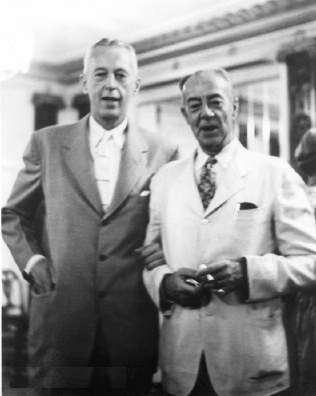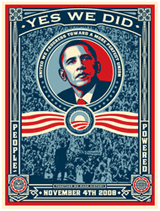Alcoholics Anonymous has been called "the most significant phenomenon in the history of ideas in the twentieth century." (from the introduction, The Spirituality of Imperfection by Ernest Kurtz and Katherine Ketcham)
On a chill, rainy afternoon in November 1934, two men sat catercorner at the kitchen table of a brownstone house in Brooklyn, New York. On the white oil-cloth covered table stood a pitcher of pineapple juice, two glasses, and a bottle of gin recently retrieved from its hiding place in the overhead tank of the toilet in the adjacent bathroom.
The visitor, neatly groomed and bright-eyed, smiled gently as his tall, craggy-faced host reached for the bottle and offered him a drink.
"No, thanks," Ebby said. "I'm not drinking."
"Not drinking! Why not?" Bill was so surprised that he stopped pouring to look with concern at his old friend. "What's the matter?"
"I don't need it anymore," Ebby replied simply. "I've got religion."
Religion? Damn! For a fleeting moment, Bill wondered about his friend's sanity. Ebby, after all, was a drinking buddy from way back. Now, apparently, he had gone off the deep end - his alcoholic insanity had become religious insanity!
Bill gulped a slug of gin. Well, dammit, not him. Religion was for the weak, the old, the hopeless; he'd never "get religion."Spirituality of Imperfection
Ebby Thatcher died thirty years later, destitute, drunk. He remained a periodic alcoholic. Bill Wilson never did "get religion." But he became sober, and, in June of 1935, with Dr. Robert Smith, founded Alcoholics Anonymous. Bill realized that to remain sober, "we must find some spiritual basis for living, else we die." Bill knew at his core that religion with its rules, pronouncements, and commandments would not work for him, nor would it keep him sober. He also knew that without help from a power greater than himself, he would be unable to keep himself sober by his will power alone. And here is the great paradox of AA.
Alcoholics Anonymous works because of a process of identification, through the telling of personal stories and experiences. Although AA insists on the spiritual for recovery, it is not religious. Bill Wilson once said that the problem with organized religions "is their claim how confoundedly right all of them are." And what makes Alcoholics Anonymous the most successful program of recovery for alcoholics is that the spirituality found in AA is more concerned with questions, with imperfection, than with rigid answers. The only requirement for membership is a desire to stop drinking.
I've twice participated in The Blogswarm Against Theocracy, because I am appalled at the rigidity of theocracy in any guise. And I've come to a conclusion: militant atheism is as rigid as the religious right. Intolerance is intolerance under any guise.
Alcoholics Anonymous is based on the acceptance of human limitations and powerlessness. It grows out of testing ideas not on the basis of some dogma or "revelation," but against the realities of everyday living. Through shared experiences, through the realities of daily living, a spirituality of the mundane evolved. It works, it really does. And membership in AA includes devoutly religious people, atheists, agnostics - the umbrella is huge. There are no rules. Perhaps it is a case of the inmates running the asylum, but it works.
But here's the deal: our nation has been overrun with hatred that has grown out of fanatical religious belief. We are reviled by people who have fanatical religious belief. And those of us who have a spiritual path are lumped into the pot by atheists who are as fanatical in their hatred as the religious right. When did atheism get all the answers?
Here's what I know. I know that I used to drink when I didn't want to, and now I don't drink even when I DO want to. If I don't drink over the next few days, on Wednesday, July 18th, I will be clean and sober for 19 years. One of my dearest friends died on July 10th with 25 1/2 years of graceful sobriety and faith that God's plan for her was solid. She had the spirituality of imperfection in her soul. We are imperfect beings in an imperfect world, and the best I can do on any given day is to try to be tolerant of your quirks and foibles, because god knows I have plenty myself.
So here's the deal: your belief is yours and I respect you for it. If that belief is that there is no god, that's fine - it's your decision. If you believe that there is a god, that's fine too. It is your decision. Don't tell me how, or what to believe. Don't call me stupid, or an idiot, or a sheeple, for having a belief in god. Hatred does not solve problems, intolerance in any cloth does not solve problems. Name calling does not solve problems. Intolerance is a form of fear, and fear is the fertilizer for ignorance. Let's put an end to fear, intolerance and hatred, and let it begin with me.
Namaste.
(cross posted at The Sirens Chronicles)




















13 comments:
Nice post. I call myself a Christian agnostic, because I like what Jesus had to say and do not care whether or not he was raised from the dead or was the only begotten son of God or any of the rest of the doctrine. I just like what he said and did and find him endlessly challenging/
So I also got a great deal out of AA... once I went to my first real meeting, I felt the compulsion to drink lift from me. It was miraculous.
I don't go to many meetings these days. But AA pulled me to the next level of readiness for sobriety and is very much a part of my core.
It's not even a "probably", but a fact, AA is the most powerful, humble program in the world. I love it when you tell of your own experience - it has that same humble power.
A recent copy of Reader’s Digest has a couple of articles on Alcoholics Anonymous. The crux of the articles is that the famous 12 Steps, don’t work at all. Apparently, there’s no data to support the claim that Alcoholics Anonymous is successful at getting people to stop drinking. From my own experience, the 12 Steps, shut down the critical thinking section of ones brain. What do you think? Comments are welcome!!
PEACE BE WITH YOU
MICKY
Alcohol makes me sick. More than one cocktail and I feel like crap for days, so that's been my deterrent to abusing it. But I have danced very close to the edge of serious drug use so I do have some understanding of addiction. I'm not a group-joiner and I'm only marginally familiar with the principles of AA, but I do know that success with breaking any addiction requires letting go of critical thinking.
Lulu, I go to about three meetings per week - in the early days I went daily. It's a matter of taking the steps into my life.
Peacechick, it has helped so many people who were hopeless alcoholics. I'm grateful to be sober.
Micky, thanks for your visit. I believe we disagree.
Mirth, I don't believe I've let go of critical thinking at all. What I believe is that without being controlled by my addictions, I am able to approach life with a much more open mind. When I drank and used, all I really cared about was getting my next drink. I question everything. And, guess what? Within AA, there are people with extremes of thinking that I find troublesome. That's life.
Thanks for the post and the history of Alcoholics Anonymous, I never knew that, and it was interesting.
I am going to have Lydia Cornell read your article when she returns home, as she is a big believer in Alcoholics Anonymous.
Good post.
Thank you for your post today at Sirens. I had a slight template problem so I want to apologize if I messed up your post over there.
Its a very insightful post and I hope it opens the debate to a gentler setting.
Diva, I meant letting go of thinking, critical or otherwise, in the early stages of recognizing a problem and admitting that one needs help. Getting on a recovery road and staying on it is another story altogether.
Larry, thanks - the history of AA is really quite interesting because Bill was quite a seeker.
Dusty, no, whatever you did over their worked just fine.
Mirth, ah - that's what we like to call "surrender." But truly, I don't think any of us with long term sobriety actually ever surrendered - we simply got beat up too badly by drugs and booze. We lost.
Diva,
All I know is you live the walk, you are the most tolerant and supportive person I know, and whether you gained this trait from years of AA or it was there to begin with and perhaps AA strengthened it, you are one of the most thoughtful, giving, generous people I know. Peace be with you in your time of loss.
Let's put an end to fear, intolerance and hatred, and let it begin with me.
And Me as well.
Micky:From my own experience, the 12 Steps, shut down the critical thinking section of ones brain.
Does the various steps of driving do the same to you? If you really need AA, trust me - there is no need for critical thinking. There is a need for figuring out how to get the hell out of that bottle, and all your best thinking to the minute you walked into that meeting, has been a failure in helping you do so. AA is a simple program. Too many turn that into easy. It's not. "Critical thinking" helped get you there.:) There are many that fall into the trap of intellectualizing the 12 steps instead of simply living each step the best they can. The steps are like the program - very simple - and very hard to live. I wish you the best.
This was an insightful read, Thanks!
Obviously it takes a great deal of strength and courage to overcome any addiction, and you've done well!
Congratulations!
Pursey, thank you sweetie. I'm still a mess. Went to a "July Birthday" party yesterday, and all I could do was talk about how Meri was going to give me a cake next week - SHE was the tolerant person. Not me.
TUA, I was told we could be too smart to get sober. And to remind me, my sponsee has disappeared. She's been looking for a lot of loopholes, and she's just a bit to smart to get that she cannot drink. Her drinker is broken.
Coffee, oh, thanks. I've not really overcome anything. I really have a daily reprieve.
Post a Comment